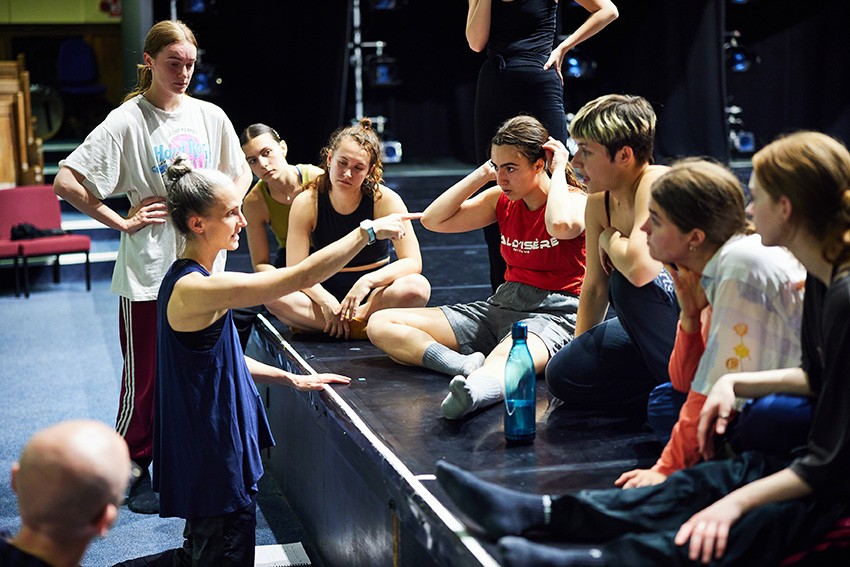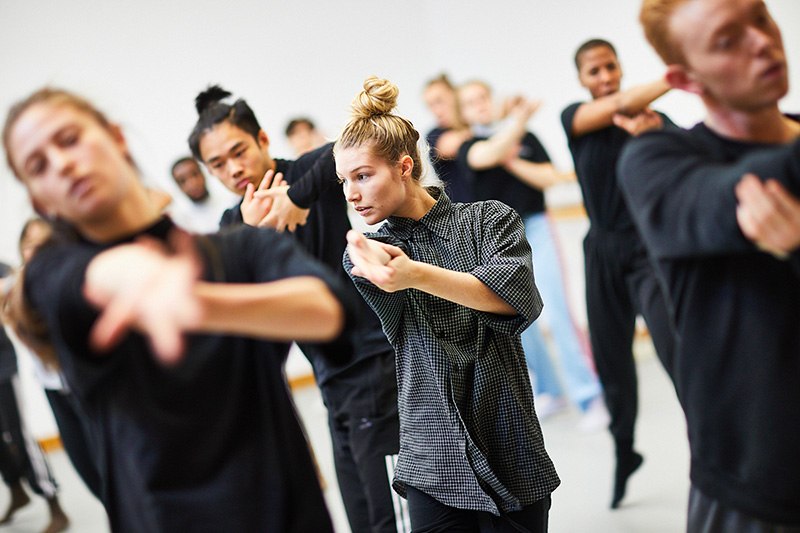
Northern School of Contemporary Dance would like to respond to an article about grade inflation published in The Times on Friday 21 July.
The article in question refers to the high percentage of firsts awarded by NSCD in 2022, equating to a total of 37 students. This high percentage is an anomaly, and a direct result of changes to assessment regulations introduced during the coronavirus pandemic in 2020 - changes acknowledged by Universities UK.
However the article also mentions that a significant proportion of these firsts (77%) were “unexplained”. By this, the article refers to “unexplained by prior attainment or background” i.e. achievement prior to attending NSCD.
NSCD has, to date, not been approached by either the Office for Students or The Times to explain these results. In the course of this statement we aim to do just that.
Before we do, it’s worth mentioning that when it comes to awarding our degrees, this is done in accordance with the frameworks and regulations set out by The University of Kent, our official validating body. Processes related to marking scales, rounding, condonement, concession, mitigation and preponderance are all applied through an external Board of Examiners, which NSCD has no control over.
Historically NSCD was criticised for marking too harshly, based on a professional model. Following input from the University of Kent, and our Board of External Examiners, this was changed over time to fall in line with grade descriptors belonging to the Framework for Higher Education Qualifications (or FHEQ for short).
In January 2022, following a rigorous inspection, the QAA (designated quality body for Higher Education appointed by the Government) published a Quality Standards Review that looked closely at teaching, assessment and feedback at NSCD. Each of these areas were judged to be transparent, fair, and of quality.
Assessment at NSCD balances more traditional modes for technique and performance work with opportunities for students to collaborate on assessment design and choose their preferred modes – verbal or written for example. Our assessment approaches are both formative and summative and cover a variety of modes including: continuous assessment of rehearsal, performance, creative work and movement research; lecture demonstrations; written essays and dissertations; written/verbal project reports and evaluations/reflections; individual and group presentations, and observations of teaching practice.

As a single-subject conservatoire delivering intensive contact hours (30 per week), and with an extended academic year that runs into July, it is unsurprising that our students are best placed to excel in their chosen field. The level of support and advice, and the variety of opportunities available for students to enhance their skills and knowledge, are exceptional.
98% of our teaching staff have a relevant teaching qualification, gained either external to NSCD or through one of the School’s postgraduate courses, introduced since 2018. Supporting them to achieve accreditation is just one of the ways we invest in staff, ensuring continuous development of approaches to pedagogy through research and scholarly practice. We are proud of our teaching staff base who all have a background in the industry, and many of whom have an active artistic practice which is ongoing.
In 2017 we validated a new BA programme which is more connected to and aligned with the industry than ever before. In 2022, students connected with a total of 67 industry professionals as part of their study experience. Panels of invited industry figures supported the marking of students, feeding directly into the moderation process, and providing students with direct feedback.
Students on our courses benefit from further and improved professional placement opportunities, creative networking opportunities, opportunities to work with our alumni, and opportunities to locate and develop their own artistic voice.
And we fully support them during their time with us.
Students have access to a range of bespoke health and well-being services on an individualised basis, including a team of five counsellors, dietitians and bodywork/injury support, in addition to learner support services, English language support and student finance support. 30% of our students have means-tested access to financial support through arts scholarships.
Students are encouraged to make sense of their own experiences and to become articulate and well-rounded individuals who can embrace change and make a real difference, enhancing the vibrant cultural industries they go on to enter.

Our students come to us with different needs and from 29 different countries where qualifications vary. What is constant is their high level of practical skill, creative practice and intellectual curiosity.
Places at NSCD are limited and therefore competitive, and awarded based on a rigorous audition process, written application and observed group discussion. Not on prior academic attainment. From the offset and throughout their time at university, expectation levels are high, testing students’ abilities to apply themselves physically, creatively, and intellectually.
And they rise to the challenge. NSCD students are talented, committed, and driven for excellence, and have access to some of the very best conservatoire education has to offer. It has been noted by external examiners that much of the work produced at Level 6 by our final-year undergraduates goes beyond the requirements of that level, easily landing in the level descriptors for Master’s qualifications. It is therefore unsurprising that their achievements at undergraduate level are high.

This phrase used by The Times and The OfS implies that a student’s success at A-level/prior to university should dictate a student’s performance and success while at university. As a higher education provider with an active Widening Participation remit and focus, we are fundamentally opposed to this notion. Our founding Principal, Nadine Senior, believed students should be able to access vocational training of the highest quality, regardless of personal circumstance or background. To this day, we offer places to students based on their performance at audition and their potential to benefit from our programmes. Not on evidence of prior attainment.
Furthermore, following the continuous erosion of arts education at GSCE and A level by the current Government over the past 10 years, it has become increasingly difficult to even look to A-level dance and theatre qualifications as a point of reference. Most applicants simply do not have the opportunity to study these anymore. Instead, their experience comes from pre-vocational schools, the commercial sector, industry connections and in some cases being self-taught, making benchmarking against achievement at A-level, sadly even more redundant.
Students come to us with wide-ranging needs and aspirations. As a small specialist arts university committed to the development of young people, and the only conservatoire for dance in the North of England, we create a space in which students and staff can take creative risks and openly explore their identity and practice, in their own unique way. We offer a student experience that is person-centred, inspirational, and that has the potential to be transformative.
Our results are an appropriate reflection of the hard work, grit and determination of our students. Their successes, and all we put in place to enable them, ought not to be diminished. We welcome a visit from The Office for Students and the opportunity to explain the outcomes we achieve further.
If you would like to offer your comment after reading this article, please email NSCD Vice Principal, Darren Carr at Darren.carr@nscd.ac.uk
We value your support and contribution.